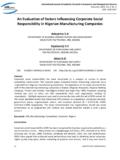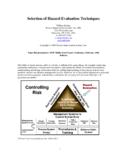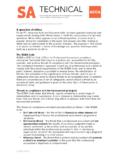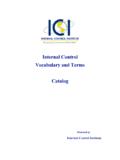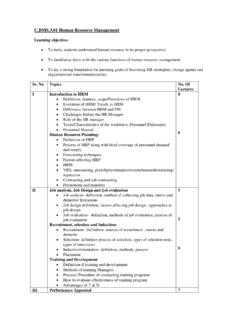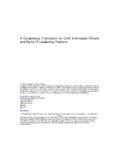Transcription of DIRECTORS’ REMUNERATION AND CORPORATE …
1 DIRECTORS' REMUNERATION AND CORPORATE governance IN. MALAYSIA. Puan Yatim*. UKM-Graduate School of Business Universiti Kebangsaan Malaysia 43600 Bangi, Selangor MALAYSIA. *. Dr Puan Yatim is an Associate Professor in CORPORATE finance and governance at Graduate School of Business, Universiti Kebangsaan Malaysia (UKM-GSB). Her current research focus is CORPORATE governance . In CORPORATE governance she has analyzed if different CORPORATE governance mechanisms such as managerial and board compensation, board composition, gender diversity act as complements or substitutes to alleviate problems due to the separation of ownership and control. Her publications to date include articles in Managerial Auditing Journal, Journal of Management and governance , and Asian Journal of Accounting and governance , and Asian Academy of Management Journal of Accounting and Finance.
2 DIRECTORS' REMUNERATION AND CORPORATE governance IN. MALAYSIA. ABSTRACT. Using a cross-sectional analysis of 428 listed firms on the Bursa Malaysia for the financial year ending 2008, this study examines the association between directors'. REMUNERATION , firm performance, and CORPORATE governance structures. The results show that directors' REMUNERATION is positively and significantly related to firm performance, CEO tenure, board size, and the existence of REMUNERATION committee. The study also finds that directors' REMUNERATION is negatively and significantly related to board independence. Consistent with prior research, the study finds a positive and significant association between directors' REMUNERATION and firm size and a firm's growth opportunity.
3 The findings can be useful to regulators since the recent proposal by market regulators to limit director's influence over REMUNERATION packages and require disclosures of directors' REMUNERATION . The study also contributes to the growing literature on executive and directors' REMUNERATION and it provides international evidence on the effects of CORPORATE governance reforms in recent years in influencing boardroom pay. Although the results of prior studies are largely supported, the period of analysis is short. The use of panel data allows us to assess changes in CORPORATE governance and directors' REMUNERATION over time in a more meaningful way. Further, the potential limitations of using total directors' REMUNERATION as the only dependent variable may not provide us a more meaningful insight of the impact of other components of total remunerations such as bonuses, salaries, and other benefits have on firm performance.
4 Keywords: directors' REMUNERATION , board of directors, firm performance, compensation. 1. 1. Introduction Recent financial crisis has raised serious criticism particularly regarding the role of CORPORATE governance in determining executive compensation (Fahlenbrach and Stulz, 2011; Bebchuck et al., 2010; Kirkpatrick, 2009). REMUNERATION and incentive systems have been shown to play a key role in influencing risk taking behaviors of managers in recent years. Empirically, the positive link between compensation and risk-taking has remained strong throughout recent financial crisis as reported by several studies ( , Adams, 2012; Chesney et al., 2012; Bolton et al., 2011; Balachandran et al., 2010). For more than a decade, executive REMUNERATION has also attracted unfavorable attention from regulators and media, who have focused on the large amounts received by executives, both in absolute terms and in comparison with the pay received by lower level employees.
5 As a result, REMUNERATION of top management has been subject to continued regulation, with government directives and voluntary codes focusing on the nature of pay disclosure1. Improvement of CORPORATE governance standards and disclosures has been at the forefront of international debate in recent times, and REMUNERATION or compensation of directors and executives is one of the key issues in this debate. For instance, in 2003, the Australian Securities Exchange (ASX) reinforced the CORPORATE governance principles and at the same time responded to community concerns with a policy change that has resulted in greater disclosure about CEO REMUNERATION . Since May 2003, listed companies on the ASX have been required to make full disclosure about the REMUNERATION packages of newly appointed CEOs.
6 Such disclosure now includes information about the components of the pay package which might govern the actions of the CEO and drive levels of performance. While in the United Kingdom, the Directors'. REMUNERATION Report Regulations were introduced in 2002 to further strengthen the powers of shareholders in relation to directors' pay. The regulations increase the amount of information shareholders are given on directors' REMUNERATION , certain disclosures, as well as performance graphs. Shareholders also may vote in an advisory capacity to approve the directors' REMUNERATION report. The Combined Code on CORPORATE governance (FRC, June 2006) also recommends that boards establish a REMUNERATION committee to help the board design REMUNERATION packages aligning to their interests with those of shareholders.
7 In July 2006, the Securities and Exchange Commission in the United States voted unanimously to revise the disclosure requirements for executive and director compensation, related-party transactions, director independence and other CORPORATE governance matters. The rules require, among others, firms to disclose dollar amounts for salary, bonus, stock awards, option awards, non-stock incentives, pension plans and total compensation. The Malaysian Code on CORPORATE governance (MCCG, amended 2012). recommends that directors' REMUNERATION packages should be aligned with the business strategy and long-term objectives of the company. Board REMUNERATION also should reflect the board's responsibilities, expertise and the complexity of the firm's activities.
8 As part of CORPORATE governance best practices, listed firms are encouraged to establish a 1. In 2009, the US economic stimulus bill, the American Recovery and Reinvestment Act of 2009 includes a provision limiting executive compensation for TARP (Troubled Asset Relief Program) recipients. The provision includes limit on compensation excluding incentive for senior executive officers to take unnecessary and excessive risks, non-payment of bonuses, retention rewards or incentive compensation to senior executive officers, and non-payment of golden parachute to senior executive officers. 2. REMUNERATION committee and explain director REMUNERATION procedures. As stipulated in the Listing Requirements of Bursa Malaysia 2001, listed firms are also required to disclose the details of the REMUNERATION of each director in its annual reports.
9 These regulatory changes are part of the efforts to address the widespread criticisms of previous REMUNERATION practices by seeking to make the pay determination process more transparent, more accountable, and less subject to influence of directors. Given the focus on REMUNERATION practices and their relations to CORPORATE governance , this current study makes a timely contribution to the debate. This study attempts to document empirical evidence on the association between CORPORATE governance mechanisms and boardroom pay of Malaysian firms. This study is particularly important due to heightened attention given by numerous stakeholders, such as regulators, shareholders, and employees on excessive director REMUNERATION in recent years.
10 This study also can inform the debate surrounding optimal governance , board and REMUNERATION practices. The aim of this study is to provide understanding of boardroom pay in Malaysia in several ways. Most studies have been concerned with the REMUNERATION in developed economies such as the United States and the United Kingdom. This study examines remunerations of CORPORATE directors in Malaysia, a country with a similar form of CORPORATE governance regime as that of the United Kingdom2. This study also draws upon a much wider range of firms including very large firms to smaller sized firms listed on the Bursa Malaysia. Unlike other studies, this study attempts to capture different dimensions of governance practices and ownership structure variables, and uses mandatory disclosed REMUNERATION data in annual reports rather than data collected via surveys and interviews.
